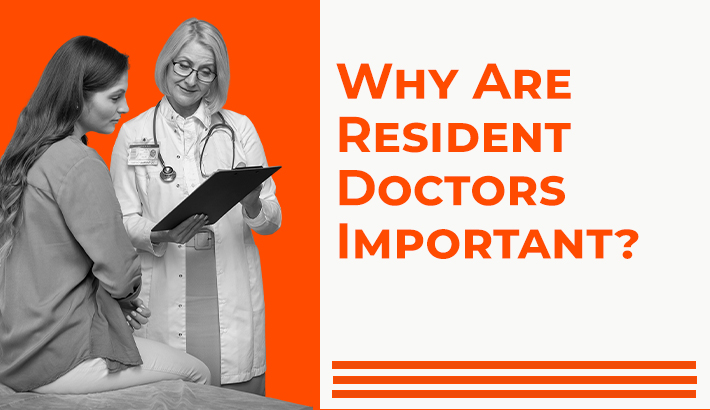How to Become a doctor and pursue a healthcare career? Depending on the role you seek, healthcare can offer intense job satisfaction, high salaries, and tremendous potential for professional growth.
With so many healthcare careers, you can find an exciting medical field job for any level of education, desired salary range, or professional interest.
Careers In Medical Field
Many healthcare jobs are growing faster than the national average, and employer demand is high. For a good reason, some of the best jobs for the next decade are in healthcare. There are an array of opportunities to pursue Careers in the Medical Field.
The best-paying jobs in healthcare require a doctorate or other professional degree, though the time it takes to earn one varies. Physicians often spend 11-15 years in school and then in training, while nurse practitioners may have only 5 or 6 years of schooling.
Other professionals, such as veterinarians and nurse anesthetists, must also have a doctorate, but these doctorates take 3 to 4 years and do not require a master's.
List of Careers in the Medical Field
Here is the list of Careers in the Medical Field.
1. Veterinary Science
2. Audiology
3. Ayurveda
4. Dentist
5. Nutritionist/ Dietician
6. Ophthalmologist
7. Orthopedics
8. Electropathy
9. Homeopathy
10. Medical Lab Technologist
11. Microbiology
12. Naturopathy
13. Nurse
14. Occupational Therapist
15. Pharmacist
16. Physiotherapist
17. Psychiatrist
18. Radiography
19. Speech Therapy
20. Sports Medicine
Healthcare Job Work-Life Balance
Work-life balance and stress can be a downside to many careers in medicine. Many nurses working in hospitals and care facilities have long shifts, including weekends, holidays, and night schedules. Scheduling demands can make planning vacations, events, and appointments challenging.
Especially for smaller independent practices, veterinarians are on call for emergencies, and agricultural or large-animal veterinarians need to travel to the patient in any weather, in out-of-the-way areas. Other healthcare careers, such as healthcare administration, offer more predictable hours. Healthcare full-time educators have predictable schedules, though they may teach weekend or evening classes. The medical job portal gives a better idea of these jobs and possible career opportunities.
Most medical professionals work in dedicated healthcare settings such as hospitals, nursing homes, physician offices, or clinics. Still, they may also work in other locations, such as military bases, prisons, cruise ships, or on large corporate campuses. Sometimes, healthcare jobs may require work in difficult or dangerous conditions, including emergency relief or serving combat troops.
Advantages Of Being A Doctor
1. Noble profession
One of the main reasons for choosing this profession is the gratification achieved by treating a human being. Relieving a patient of his agony or bringing back a patient from the brink of death gives immense satisfaction; any other profession cannot match this.
2. Healer of humanity
All said and done, medicine remains the only profession that alleviates pain and heals and cures humanity. The credit for increased longevity with a much better quality of life goes solely to the advances in the medical arena and research done by doctors and scientists. Without doctors, the human race would have gone extinct due to epidemics and infections.
3. Preventive and social responsibility
The doctor can be instrumental in changing certain aspects and taboos ingrained in society. For example, the doctor can highlight the effects of smoking or talk against certain habits like open defecation to all sections of society.
4. Asset to family and friends
A doctor in a family is a real asset. He treats his patients and gives preventive advice to his family and friends. Many of you must turn to a doctor in relation first, for informal advice, before consulting a specialist.
Disadvantages Of Being A Doctor
1. Medical courses are comparatively lengthy and expansive study courses and difficult training with slave-like duties.
2. Uncertain future for aspiring doctors during training: Nowadays, more than just MBBS is needed, and it is essential to specialize. Because of fewer seats in post-graduation, poor regulation of medical education, and uneven criteria, only a few people ultimately get the branch and college of their choice. They have to flow with the system eventually.
3. Risk doctoring himself: Repeated exposure to infected patients, in addition to long work hours without proper meals, make them prone to specific health hazards, like infections which commonly include tuberculosis and other bacterial and viral illnesses. Radiologists get radiation exposure. Because of difficult working conditions, some doctors are prone to depression and anxiety and may start substance abuse.
List of Important MBBS Entrance Exams in India
1. Armed Forces Medical College Exam (AFMC)
2. AIIMS Entrance Exam
3. All India Pre-Medical / Pre-Dental Entrance Examination (AIPMT)
4. Banaras Hindu University Medical Entrance Examination (BHU Medical Entrance Exam)
Where Can Doctors Work?
A doctor can work in a consulting room providing outpatient department (OPD) consultation in a hospital environment. Any ill patient can visit a doctor during their OPD hours to seek consultation. Many governments or private hospital doctors provide OPD consultation based on their specialized medicine segment. Medical job portals can give better insights into this work life.
After their OPD hours, doctors can work in the emergency room or visit hospitalized patients. In hospital wards, a doctor ensures that their treatment plan works and the patient's health shows improvement. Doctors, especially surgeons, work in the operating theater (OT) to conduct life-saving or illness-related operations.
Apart from practicing as a doctor in a hospital or medical facility, a doctor may work full-time or part-time as a professor in a medical college. Based on their specialty, a doctor teaches the relevant subject to medical students.
For instance, a medical college may hire a cardiologist to teach students about functioning. Many doctors work as visiting faculty in medical colleges. This means they treat patients and also teach students in their free time.
Education and Pay of Doctors
When choosing from the many jobs in healthcare, consider how much education they require, the typical work settings, stress levels, work-life balance, and salary. These considerations can help you narrow the many medical professions you want to consider to a manageable list. Salaries for careers in the medical field range widely.
The highest-paying jobs in the medical field pay hundreds of thousands annually, while the lowest-paying ones are well below the national average. Generally, the more education and responsibility required, the higher the salary. Most jobs also require you to be able to learn and adapt rapidly because medicine as a field can change quickly.




